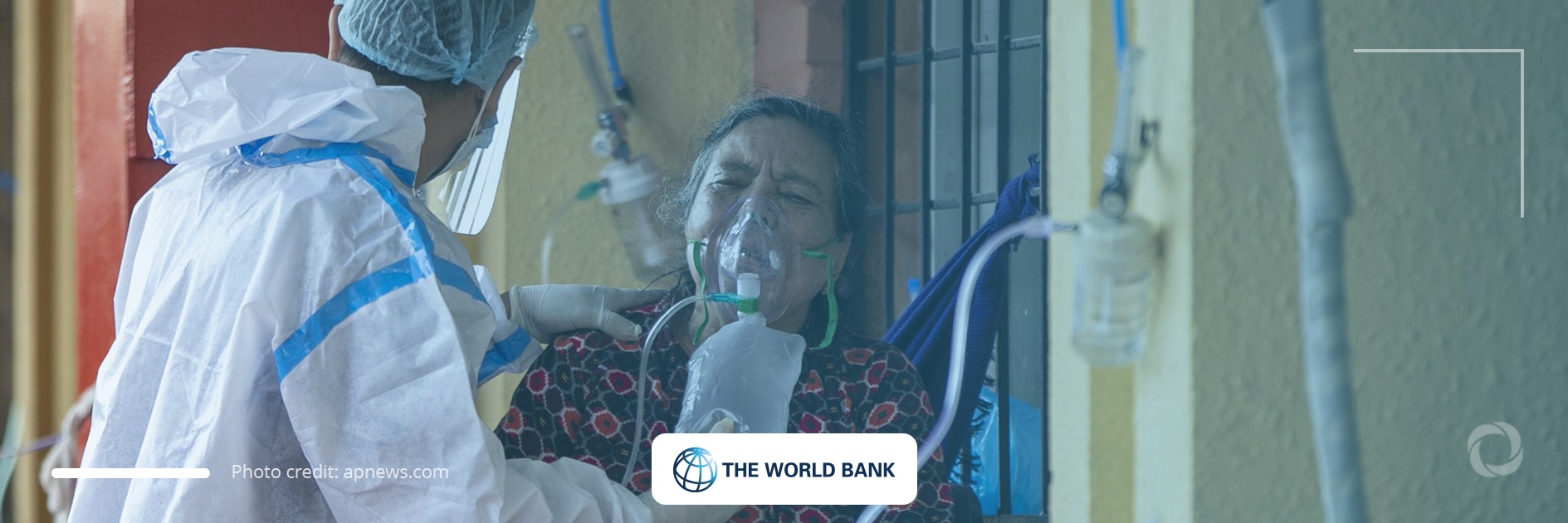The World Bank (WB) has signed a US$150 million concessional loan agreement with the Government of Nepal (GoN) to support the country’s resilient recovery from the COVID-19 pandemic. At the same time, WB’s Board of Executive Directors has also approved three separate financing agreements worth US$244 million in total for Bhutan, Afghanistan, and Bangladesh.
Budgetary support for Nepal
The US$150-million-worth Fiscal Policy for Growth, Recovery and Resilience Development Policy Credit, signed on June 27, is expected to be utilized for physical infrastructure projects and economic recovery sectors as per the needs and priorities of the GoN. The funding will support the reforms that aim to protect the most vulnerable and back business growth with a particular focus on:
- social protection, the intergovernmental framework, and supporting access to capital for businesses
- accelerating ongoing large development projects to create jobs, boost markets and support green recovery
Sishir Kumar Dhungana, Finance Secretary of Nepal, commented that the project would help Nepal to build back better and greener through reforms to the tax and customs systems, public investment management, environmental regulations, and debt management. Faris Hadad-Zervos, WB Country Director for Maldives, Nepal, and Sri Lanka, said the project would help the country to achieve sustained growth during and after the COVID-19 pandemic.
According to WB, COVID-19 has most probably led to an increase in poverty rates in Nepal, with the poor and vulnerable suffering disproportionately from reduced remittances, lost earnings from potential migration, job losses (about 1 million), and rising prices for essential goods. The prolonged movement restrictions imposed to curtail the spread of the coronavirus have significantly impacted all sectors of the economy in Nepal.
Development policy credit for Bhutan
The US$35 million development policy credit approved by the Board on June 23 aims to support Bhutan’s efforts to alleviate the health, social and economic impacts of COVID-19 and to achieve economic resilience and environment sustainability.
The project aims to:
- alleviate the impact of COVID-19
- strengthen economic resilience and environmental sustainability through a focus on domestic resource mobilization, debt transparency, and management
- support immediate relief measures through actions aimed at providing credit to the private sector, establishing an institutional framework to distribute COVID-19 vaccines, and mitigating the risks of gender-based violence.
Education support for Bangladesh and Afghanistan
The Higher Education Acceleration Transformation Project (HEATP), the first-ever regional education project between Bangladesh and Afghanistan, was approved by the WB’s Board of Executive Directors on June 24 and consists of a US$191 million credit to Bangladesh and a US$18 million grant to Afghanistan with the goal of helping these countries to strengthen the higher education sector and to respond more effectively to the COVID-19 pandemic.
It aims to support students to gain access to quality higher education by:
- developing relevant skills and empowering women and girls to secure better jobs, including student mobility through equivalence programs, credit transfer schemes, and university twinning arrangements within the region
- helping more women to access quality higher education which will result in increased female labor force participation
- establishing a South Asian Higher Education Portal to facilitate the virtual mobility of students across the region
- strengthening regional cooperation among research and education networks and providing wider access and connectivity for students
Mercy Tembon, World Bank Country Director for Bangladesh and Bhutan, commented, “As Bangladesh aspires to achieve an upper-middle-income status, the country needs to invest in its youth to create a skilled and globally competitive workforce.” This financing will help Bangladesh to strengthen the quality and relevance of tertiary education, as well as ensure business continuity during the COVID-19 pandemic, she added.
Henry Kerali, World Bank Country Director for Afghanistan, said that the regional project will prepare students, particularly female students, to work in leadership and decision-making positions.
The COVID-19 pandemic has hit the higher education sector hard in South Asia causing more dropouts and fewer enrolments. The region has the second-lowest female labor force participation rate globally and in Afghanistan, only 30% of students at the tertiary level are women.

